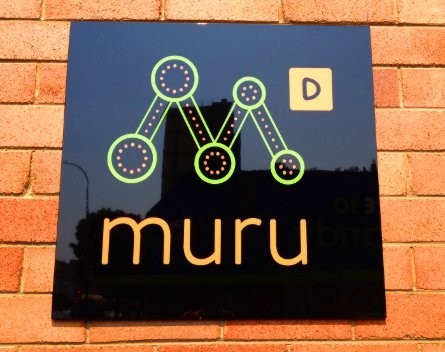
Telstra-backed accelerator muru-D has announced the 11 startups that make up its second class, and they’re the most diverse batch of entrepreneurs co-founder Annie Parker has ever been involved with in such a program.
The 11 startups come from a range of industries and include education platforms, a surfboard manufacturer that uses 3D modelling and a digital marketplace for freight transporters to sell unused capacity.
The teams that make up those 11 startups include three female chief executive officers, two female chief technical officers and founders from China, Argentina, Brazil, Zimbabwe, the United States, the United Kingdom and Australia.
“The diversity part of it is really unique,” Parker says.
“I’ve done goodness knows how many of these, this is my 14th run through (an accelerator program), and this is very easily the most international I’ve ever had.”
Lean startup methodology says it’s important for startups to aim global from day one, and Parker says Australia’s startup ecosystem needs to do that too.
She’s practising what she preaches at muru-D. Of the startups that applied, more than 20% came from overseas, some from as far as Silicon Valley and India.
“The message is getting out there, through our mentor network, which is global, and that bodes very well not just for our startups, but also for the health of our ecosystem,” Parker says.
“Yet again, we’ve been able to uncover world class entrepreneurial talent and are delighted with the quality of applicants coming into the academy. We’ve seen just how significant this experience has been for our first round graduates and we can’t wait to get class two underway.”
Muru-D takes a relatively modest 6% stake in companies in exchange for $40,000 in funding and access to its network. Parker says that, combined with the fact it’s backed by Telstra and as a consequence doesn’t have its own funding concerns, makes the program appealing to startups.
The startups in muru-D’s second batch include:
- FanFuel; a sponsorship marketplace where brands search, measure and secure their sponsorship deal.
- FreightExchange; a digital marketplace for freight transporters to sell their unused capacity to businesses that need to ship goods.
- Wattblock; quick, customised web-based energy-saving roadmaps for residential and commercial strata buildings.
- Disrupt Surfing; custom surfboards made using 3D modelling.
- You Chews; an online platform, making it easy to find great food for meetings and events.
- TripALocal; an online platform that connects travellers with local hosts for authentic local experiences.
- Peep Digital; an intelligent, phonetic English language technology platform to help children, youths and adults struggling with English pronunciation and comprehension.
- VClass; the first hybrid-education platform that combines the power of internet VoIP and traditional pen and paper to create an online teaching experience like face to face.
- Instrument Works; developers of wireless, portable sensors and instruments to build the internet of things for research.
- CrowdSourceHire; a pre-hire assessments marketplace platform that crowd sources industry experts to assist with assessment of jobs for companies.
- SoccerBrain; making it easy for anyone to coach a team, providing tailored, interactive training sessions week-by-week for coaches and players.


COMMENTS
SmartCompany is committed to hosting lively discussions. Help us keep the conversation useful, interesting and welcoming. We aim to publish comments quickly in the interest of promoting robust conversation, but we’re a small team and we deploy filters to protect against legal risk. Occasionally your comment may be held up while it is being reviewed, but we’re working as fast as we can to keep the conversation rolling.
The SmartCompany comment section is members-only content. Please subscribe to leave a comment.
The SmartCompany comment section is members-only content. Please login to leave a comment.